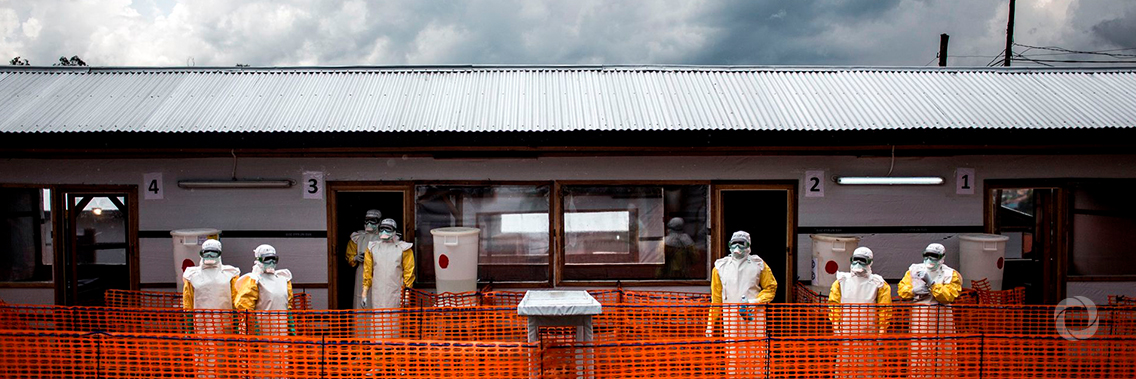As the Ebola outbreak in the Democratic Republic of the Congo (DRC) approaches 1000 cases amid increased violence, WHO reaffirmed its commitment both to ending the outbreak and working with the government and communities to build resilient health systems.
Since the outbreak was declared in August 2018 there have been 993 confirmed and probable cases and 621 deaths in North Kivu and Ituri provinces.
“We use words like ‘cases’ and ‘containment’ to be scientific, but behind every number is a person, a family and a community that is suffering,” said Dr. Tedros Adhanom Ghebreyesus, WHO Director-General. “This outbreak has gone on far too long. We owe it to the people of North Kivu to work with them in solidarity not only to end this outbreak as soon as possible but to build the health systems that address the many other health threats they face on a daily basis.”
More than 96 000 people have been vaccinated against Ebola in DRC, along with health workers in Uganda and South Sudan. As of 21 March, 38 of 130 affected health areas have an active transmission. More than 44 million border screenings have helped to slow the spread of Ebola in this highly mobile population. No cases have spread beyond North Kivu and Ituri provinces, and no cases have crossed international borders.
However, the risk of national and regional spread remains very high, especially when episodes of violence and instability impact the response.
WHO has more than 700 people in DRC and is working hard with partners to listen to the affected communities and address their concerns and give them greater ownership of the response, particularly in the current outbreak hotspots of Katwa and Butembo.
Despite the challenges, most communities accept response interventions. More than 90% of those eligible for vaccination accept it and agree to post-vaccination follow-up visits. Independent analysis of vaccination data indicate that the vaccine is protecting at least 95% of those who receive it in a timely manner. More than 80% of people also accept safe and dignified burials, a key to preventing onward transmission.
“We count on donors to help close the funding gap so we can end this outbreak as soon as possible,” said Dr. Tedros. “We will still be in DRC long after this outbreak has finished, working with the government and communities on the road to universal health coverage. We are committed to improving the health of the people of DRC now and in years to come.”
For the next 6 months, the combined financial need for all response partners is at least US$ 148 million. As of 19 March, US$ 74 million had been received.
Original source: WHO
Published on 23 March 2019

